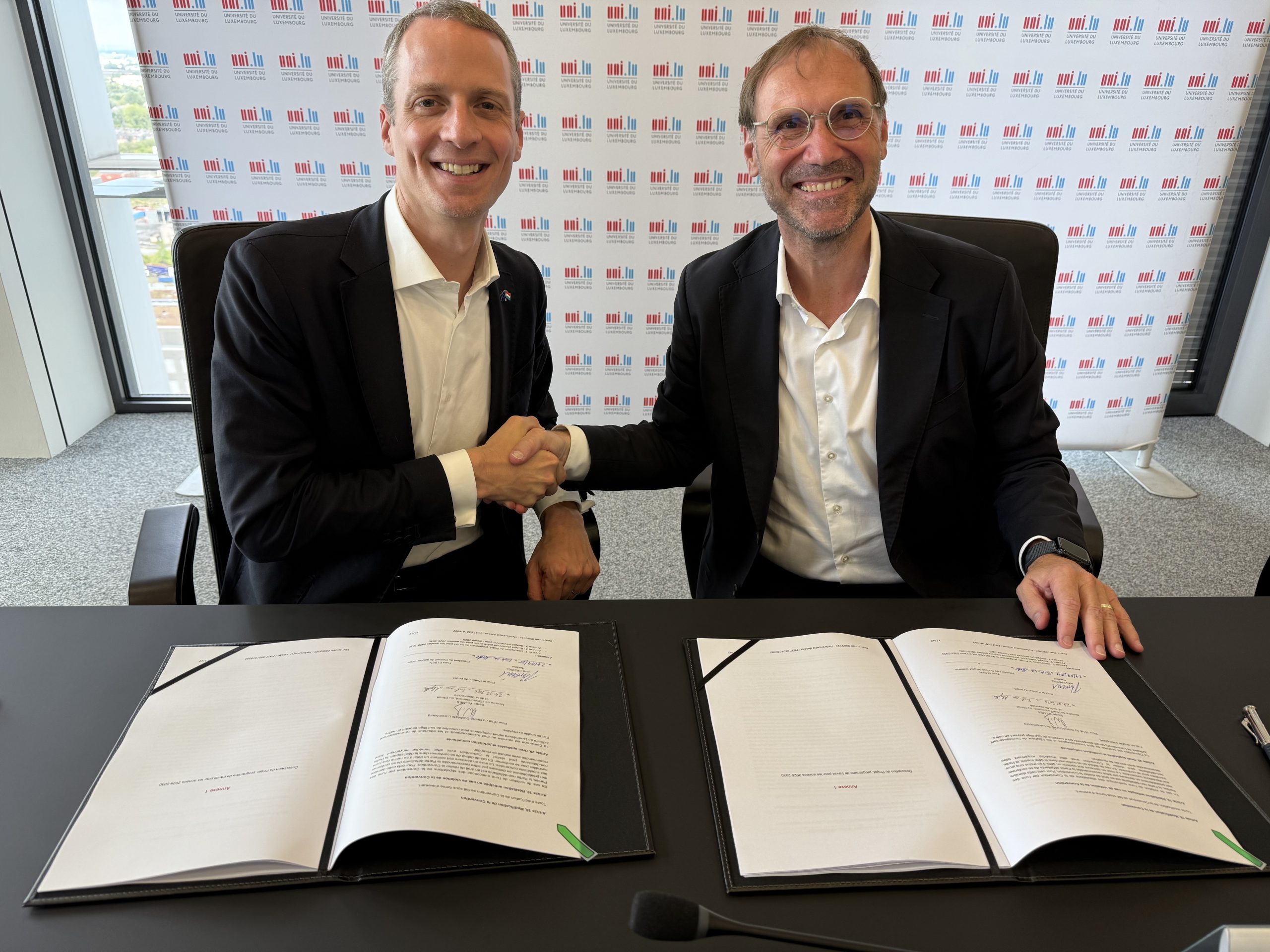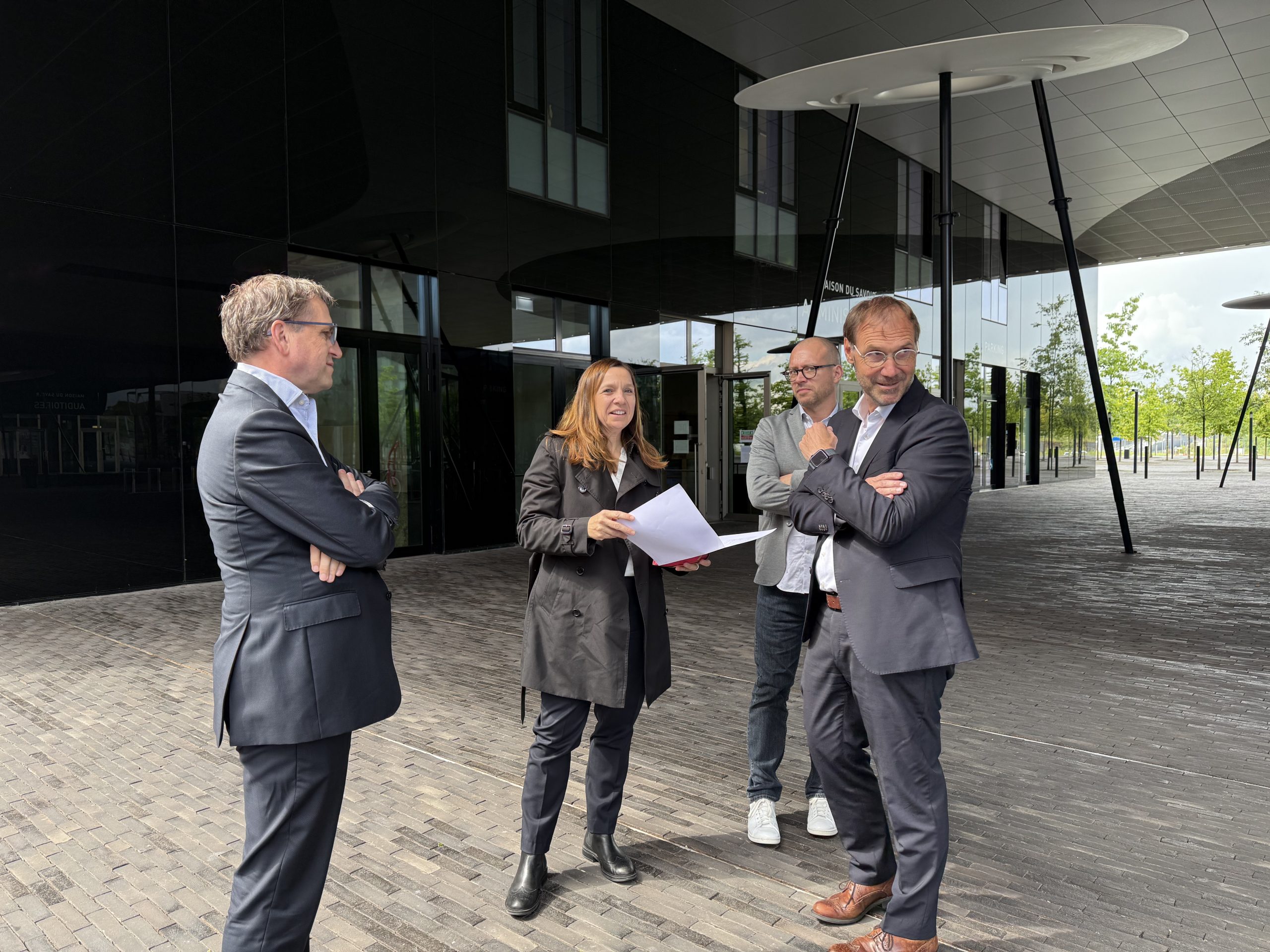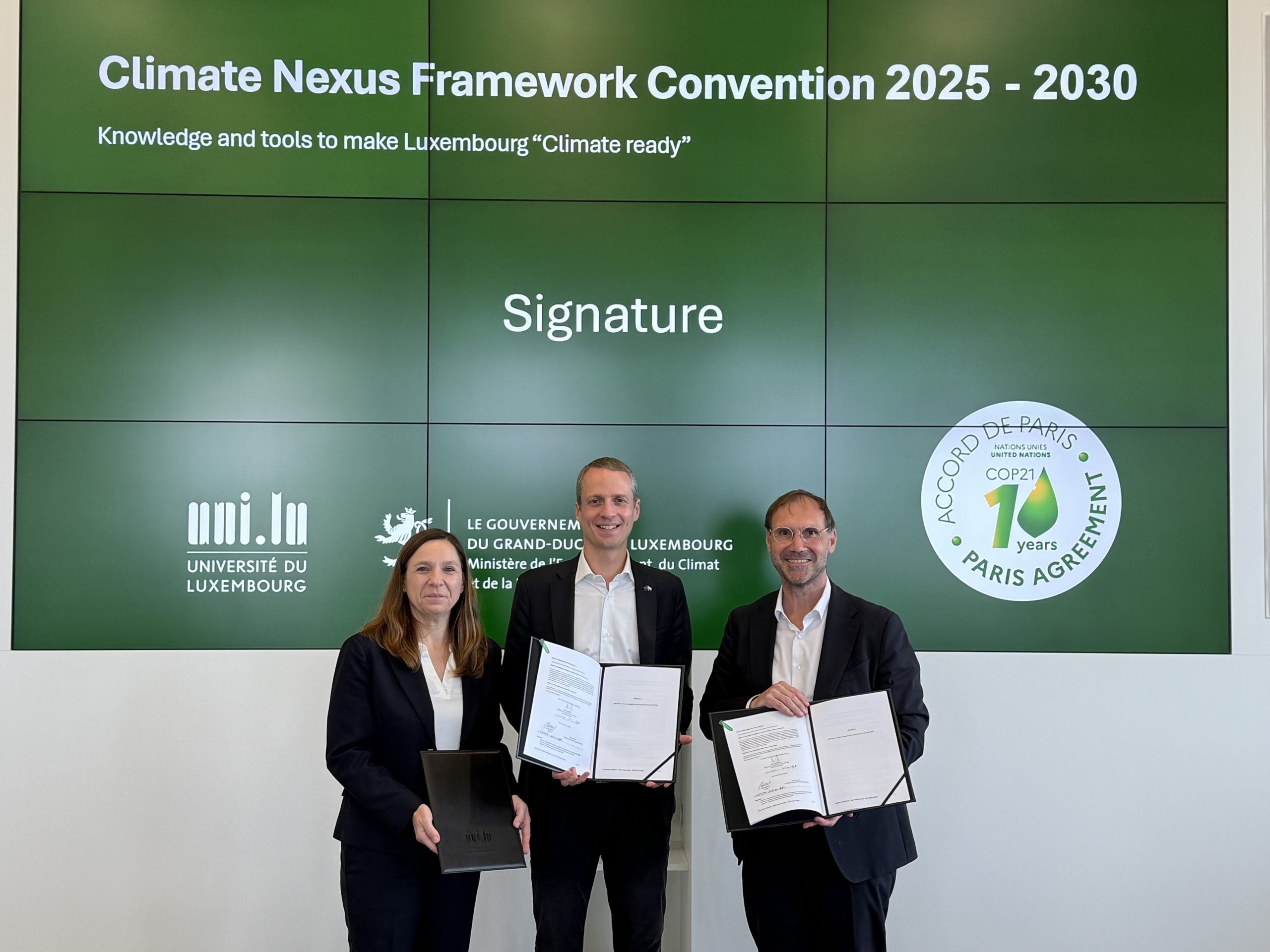In a landmark move marking the 10th anniversary of the Paris Agreement, Luxembourg’s Ministry of the Environment, Climate and Biodiversity (MECB) and the University of Luxembourg have signed the Climate Nexus Framework Convention. This five-year initiative (2025–2030) aims to make Luxembourg climate-ready by integrating research, education, policy, and public engagement to address climate change, biodiversity loss, and socio-economic challenges.
To achieve its goal, the convention will mobilise Luxembourg scientific, education and policy stakeholders on projects in social, environmental and engineering sciences. The Climate Nexus approach highlights the interdependence between climate, biodiversity, water, food, and social equity. At the heart of the initiative are six “readiness” pillars:
-
Social Readiness
Encourages citizen science, participatory governance and youth engagement. Continued collaboration with the Klima Biergerrot, youth education initiatives (such as the Scienteens Lab & Academy), and a new cross-university sustainability course are foreseen.
-
Institutional Readiness
Leverages socio-environmental data to enhance climate services in Luxembourg and monitor climate-related systemic risks. This includes mapping of chemical substances in Luxembourg that may be detrimental for human health and the ecosystem.
-
Technological
ReadinessSupports Luxembourg’s goal of climate neutrality by 2050 through research and pilot projects on carbon capture, utilisation, and storage (CCU/S), as well as through research on the potential of nature-based solutions.
-
Global
ReadinessThe Convention connects local action to global science-policy platforms like the IPCC (Intergovernmental Panel on Climate Change) and IPBES (Intergovernmental Science-Policy Platform on Biodiversity and Ecosystem Services). Luxembourg will support the IPCC’s 7th Assessment Cycle on mitigation by hosting part of its technical support unit. It will also foster partnerships with the Global South, in line with Luxembourg’s upcoming international climate finance strategy 2026-2030.
-
Academic
ReadinessAdvances interdisciplinary research and sustainability education across university programmes.
-
Climate Nexus Across Disciplines
Offers a flexible framework to address emerging crises and establish adaptive priorities. In the same vein, the University recently established the Luxembourg Centre for Socio-Environmental Systems (LCSES), under the direction of Prof. Ralf Seppelt.
The primary interest of the LCSES is to assess how societies can navigate global environmental changes and crises through sustainable and equitable development. Its interdisciplinary research will assess the complex interactions between human systems and the environment, in the areas of governance, biodiversity, food security, and energy transitions.
The Convention empowers the University to explore, test, and expand climate-related transformations at all levels through interdisciplinary research, data-driven analysis, and inclusive public engagement. The Convention also supports several chapters of Luxembourg’s 2023–2028 coalition agreement, accelerating national and global sustainability targets.




